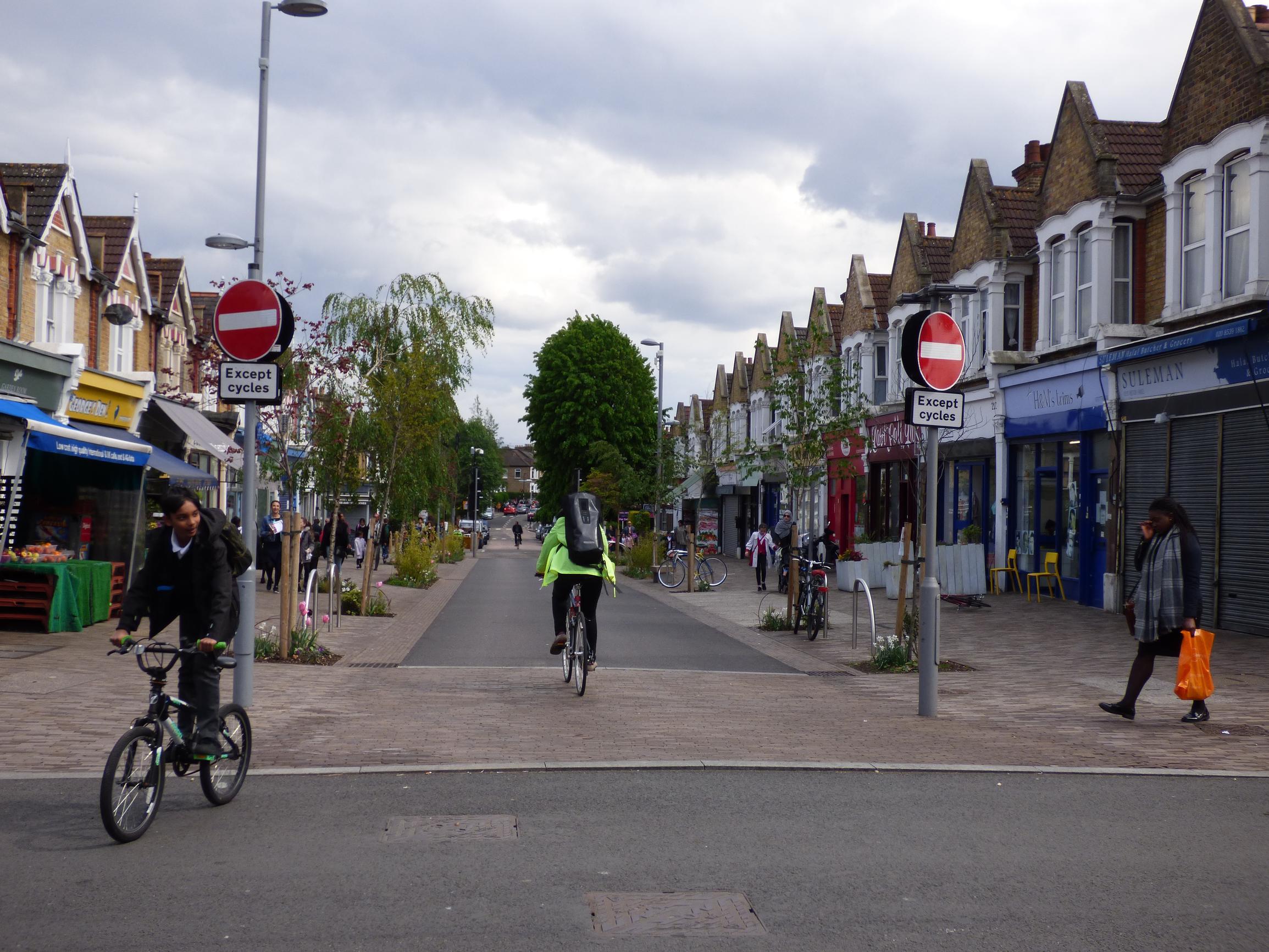

Health benefits from London’s Mini-Holland programme are ten times the cost of implementing the schemes, according to a new report.
Researchers at the University of Westminster found that the investment returns from the £100m spent on the three Mini-Holland schemes - in Enfield, Kingston and Waltham Forest – is £1bn.
The three boroughs were awarded Mini Holland funding in 2014 by the then Mayor of London Boris Johnson.
The research was carried out by University of Westminster academics Rachel Aldred, Anna Goodman and James Woodcock. They used data from the Office for National Statistics to estimate the impact of the schemes on adults aged 20–80 in mid-2020 living in “high-dose” areas and Low Traffic Neighbourhoods (LTNs), either in Mini-Holland boroughs or in other Outer London Covid-era LTNs.
In LTNs there is a physical activity-related benefit of £4,800 per person over a 20-year period, as opposed to an average of £3,000 across the wider “high-dose” area, according to the study.
The high-dose area generated over 20 years a health economic benefit of £1,056m, of which £821m came from reduced mortality due to additional physical activity, say the researchers.
Each year, there are 37 deaths avoided and 753 years of life lost avoided, with 535,421 sick days avoided, the study calculates. “This benefit is likely to have been concentrated within the LTN areas that saw the greatest rise in walking and cycling. For the LTN areas within the Mini-Holland boroughs, the health economic benefit is £443m, around 40% of the whole programme benefit, of which £344m comes from physical activity benefits.”
The researchers say their findings support the case for building infrastructure to help meet policy goals of increasing active travel and reducing car use. “The strongest support is for a policy combining low traffic neighbourhoods with providing proximity to main road cycle tracks, as was done most consistently during this time in the South of Waltham Forest,” they say.
“The findings suggest that this leads to substantially increased walking, increased participation in cycling, and reductions in car ownership and/or use, and that the benefits of increased walking and cycling substantially outweigh scheme costs.”
Future research should examine impacts of these measures in a wider range of contexts, such as in the UK outside London and/or in other London boroughs, including Inner London, the report says.
Impacts of active travel interventions on travel behaviour and health: Results from a five-year longitudinal travel survey in Outer London

TransportXtra is part of Landor LINKS
© 2026 TransportXtra | Landor LINKS Ltd | All Rights Reserved
Subscriptions, Magazines & Online Access Enquires
[Frequently Asked Questions]
Email: subs.ltt@landor.co.uk | Tel: +44 (0) 20 7091 7959
Shop & Accounts Enquires
Email: accounts@landor.co.uk | Tel: +44 (0) 20 7091 7855
Advertising Sales & Recruitment Enquires
Email: daniel@landor.co.uk | Tel: +44 (0) 20 7091 7861
Events & Conference Enquires
Email: conferences@landor.co.uk | Tel: +44 (0) 20 7091 7865
Press Releases & Editorial Enquires
Email: info@transportxtra.com | Tel: +44 (0) 20 7091 7875
Privacy Policy | Terms and Conditions | Advertise
Web design london by Brainiac Media 2020